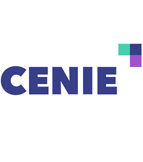Actividades
Open Dialogue talks about socio-demographic change, its challenges and opportunities


.jpg)

The Programme for a Long-lived Society is the expression that the longevity of the population has reached a special dimension in our society.
And this is not a temporary situation, but a trend that will only stabilize and increase, which will give priority to the generation of new dynamics that respond to such a consolidated demographic situation.
Faced with this new, but permanent and growing, social reality, marked by the increase in the longevity of the population, it is necessary to contribute to a better understanding of it, facilitating students and professionals from very diverse sectors (architecture, engineering, design, cultural management, health sciences, psychology, sociology, social work, economics, etc.) to access specific knowledge that they can apply throughout their professional career.
This will encourage the creation of new specialised professional profiles, which understand longevity in a global way, while also doing so from the specific framework of each of their disciplines.
The generation of these new and diverse professional profiles specialised in longevity will make it possible to promote a change in the productive structure, fight unemployment and favour new areas of knowledge that respond to the great social and economic challenges of the contemporary world.
Therefore, from the CENIE, and within the framework of the Programme for a Long-lived Society, we are going to promote an Open Dialogue with experts who are at the forefront of their fields of knowledge and, furthermore, encourage reflection in society as a whole on "socio-demographic change: challenges and opportunities".
"Open Dialogue" aims to be a meeting place where we can reflect on issues that require multidisciplinary approaches.
In order to encourage a broad dialogue, the General Foundation of the University of Salamanca and the CENIE have invited the following experts and others who may be incorporated during the development of the dialogue:
- Sergi Arenas i Guarch –Autónoma de Barcelona University
- Mercedes Ayuso - Barcelona University
- François Beland – Université de Montréal
- Jorge Bravo – Nova de Lisboa University
- Elisa Chuliá – Nacional de Educación a Distancia University
- Karen M. Gibler – Georgia State University
- Rosa Gómez-Redondo – Nacional de Educación a Distancia University
- Guillen López Casasnovas - Pompeu Fabra University
- Rubén Camilo Lois González – Santiago de Compostela University
- George P. Moschis - Georgia State University
- Pablo Antonio Muñoz Gallego – Salamanca University
- Jorge Olcina - Alicante University
- Laura Pellisé – Pompeu Fabra University
- Gianni Pes – Universitá degli Studi di Sassari
- Mercè Pérez-Salanova – Autónoma de Barcelona University
- María Dolores Puga – Consejo Superior de Investigaciones Científicas
- Jonas Radl – Carlos III de Madrid University
- María Estela Rivero – University of Notre Dame du Lac
- Gregorio Rodríguez Cabrero – Alcalá de Henares University
- Sebastián Sarasa – Pompeu Fabra University
- Jeroen Spijker – Autónoma de Barcelona University
- Gerdt Sundström - Jönköping University
- María Victoria Zunzunegui – Université de Montréal
Open Dialogue is an initiative that forms part of the Programme for a Long-lived Society which is part of the INTERREG V-A Programme, Spain-Portugal, POCTEP, 2014-2020, of the Regional Development Fund (ERDF).
